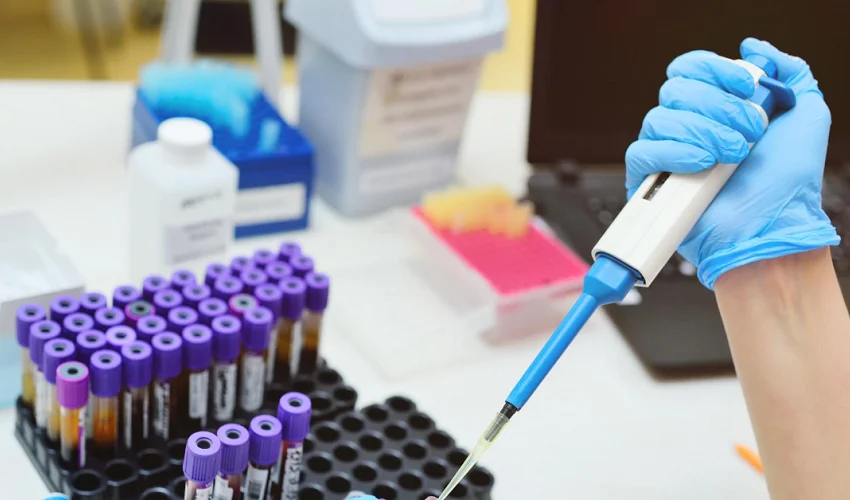Living with diabetes can be challenging, especially for young adults who are juggling the demands of work, studies, and personal life. Stress, a common aspect of modern life, can have a significant impact on diabetes management and overall health. In this article, we will explore the relationship between stress and diabetes, specifically focusing on young adults. We will discuss the causes and effects of stress-induced diabetes, strategies for managing stress, and practical tips for achieving a healthy work-life balance. By understanding the connection between stress and diabetes and implementing effective coping mechanisms, young adults can lead fulfilling lives while effectively managing their condition.
The Link Between Stress and Diabetes
Stress is a natural physiological response to challenging or threatening situations. When faced with stressors, the body releases stress hormones, such as cortisol and adrenaline, which trigger a series of reactions to prepare the body for a “fight or flight” response. However, chronic stress can have detrimental effects on overall health, including an increased risk of developing diabetes and its complications.
Understanding Stress-Induced Diabetes
Stress-induced diabetes, also known as stress hyperglycemia, is a condition in which stress hormones interfere with the body’s ability to properly regulate blood sugar levels. Prolonged exposure to stress can lead to insulin resistance, where the cells become less responsive to insulin, resulting in elevated blood glucose levels.
Identifying Stressors in Young Adults
Young adults face a variety of stressors that can contribute to the development of stress-induced diabetes. Work-related stressors, such as long working hours, high workload, and job insecurity, can be significant triggers. Academic stressors, including exams, deadlines, and performance pressure, also contribute to increased stress levels. Additionally, personal life stressors, such as relationship issues, financial worries, and social pressures, can further exacerbate stress in young adults.
The Effects of Stress-Induced Diabetes on Quality of Life
Stress-induced diabetes can have significant physical effects on individuals. The increased blood glucose levels resulting from stress can lead to a higher risk of diabetic complications, such as retinopathy, neuropathy, and cardiovascular disease. Moreover, stress can disrupt blood glucose control and contribute to glycemic variability, making it more challenging to maintain stable and healthy blood sugar levels. Additionally, stress can affect weight management and body composition, leading to changes in body weight and an increased risk of obesity.
Psychological Effects
The psychological impact of stress-induced diabetes should not be overlooked. Young adults with diabetes often experience emotional distress and face mental health challenges. The constant need to manage diabetes can contribute to feelings of anxiety and depression. Furthermore, stress has been shown to impair cognitive function and decision-making abilities, which can impact various aspects of life, including work and personal relationships.
Social Effects
Stress-induced diabetes can have a profound impact on an individual’s social life. Managing diabetes can lead to strained relationships and decreased social interactions. Additionally, individuals with diabetes may experience stigma and discrimination, affecting their self-esteem and overall well-being. Moreover, the stress associated with diabetes management can impose limitations on career and personal opportunities, adding to the burden faced by young adults.
Strategies for Managing Stress-Induced Diabetes
To effectively manage stress-induced diabetes, it is crucial to prioritize diabetes management basics. Regular monitoring of blood glucose levels allows individuals to stay informed about their current status and make necessary adjustments. Adhering to a healthy and balanced diet that includes whole grains, fruits, vegetables, and lean proteins is essential for maintaining stable blood sugar levels. Engaging in physical activity and exercise not only helps manage stress but also improves insulin sensitivity and promotes overall well-being.
Stress Management Techniques
Implementing stress management techniques is crucial for young adults with stress-induced diabetes. Deep breathing exercises and meditation can help reduce stress levels and promote relaxation. Engaging in relaxation techniques, such as yoga and mindfulness, can also provide valuable tools for managing stress. Seeking support from friends, family, and support groups can be beneficial in coping with stress and obtaining emotional support during challenging times.
Time Management and Prioritization
Effective time management and prioritization skills are essential for achieving a healthy work-life balance. Creating realistic schedules and setting achievable goals can help reduce stress levels. Learning to delegate tasks and saying no when necessary is crucial in preventing burnout and overwhelm. Balancing work, self-care, and leisure activities ensures that young adults have time to recharge and focus on their well-being.
Achieving a Healthy Work-Life Balance
When it comes to achieving a healthy work-life balance with stress-induced diabetes, certain strategies can be helpful. Communicating with employers about diabetes management needs, such as breaks for blood glucose monitoring or healthy meal options, is important in creating a supportive work environment. Establishing healthy boundaries and managing workload can help prevent excessive stress. Utilizing workplace accommodations and flexible work arrangements, such as remote work or flexible hours, can also contribute to a better work-life balance.
Lifestyle Modifications
Making lifestyle modifications outside of work is crucial for overall well-being. Prioritizing self-care and relaxation activities, such as engaging in hobbies, practicing self-reflection, or spending time with loved ones, can help manage stress levels. Incorporating physical activity into daily routines, even in small increments, promotes physical and mental well-being. Building a support network of individuals who understand and support diabetes management efforts can provide a sense of community and emotional support. Seeking professional help, such as counseling or therapy, can be beneficial for managing stress and improving overall mental health.
Seeking Professional Support
Consulting with healthcare professionals, such as endocrinologists and diabetes educators, is essential for effective diabetes management. They can provide personalized guidance and support based on individual needs and circumstances. Engaging in counseling or therapy sessions with mental health professionals can help individuals develop healthy coping mechanisms for managing stress. Additionally, attending diabetes education programs and workshops can enhance knowledge and provide practical strategies for living a fulfilling life with stress-induced diabetes.
Successfully managing stress-induced diabetes in young adults requires a comprehensive approach that addresses both physical and emotional well-being. By understanding the relationship between stress and diabetes, implementing effective stress management techniques, and achieving a healthy work-life balance, young adults can improve their quality of life and effectively manage their condition. It is important for individuals with diabetes and their caregivers to seek support from healthcare professionals, join support groups, and stay informed about the latest research and strategies to lead a fulfilling life while living with diabetes.




